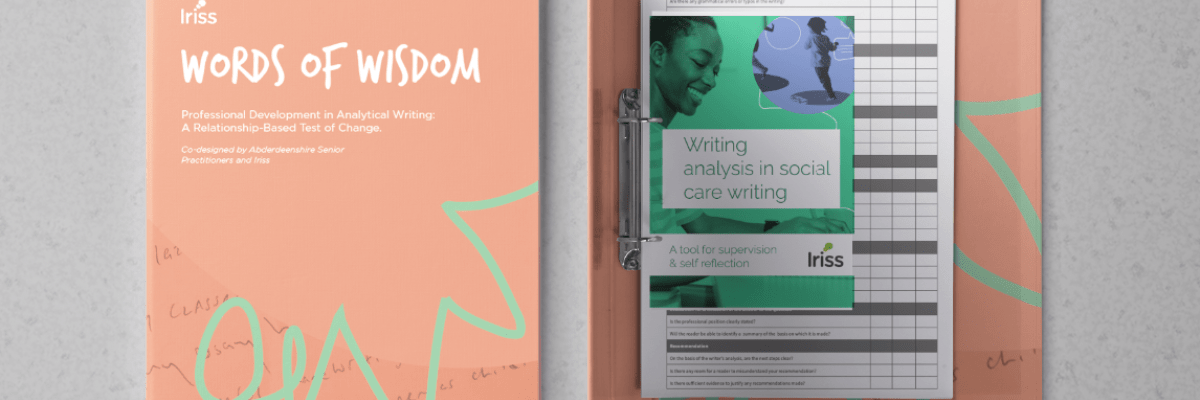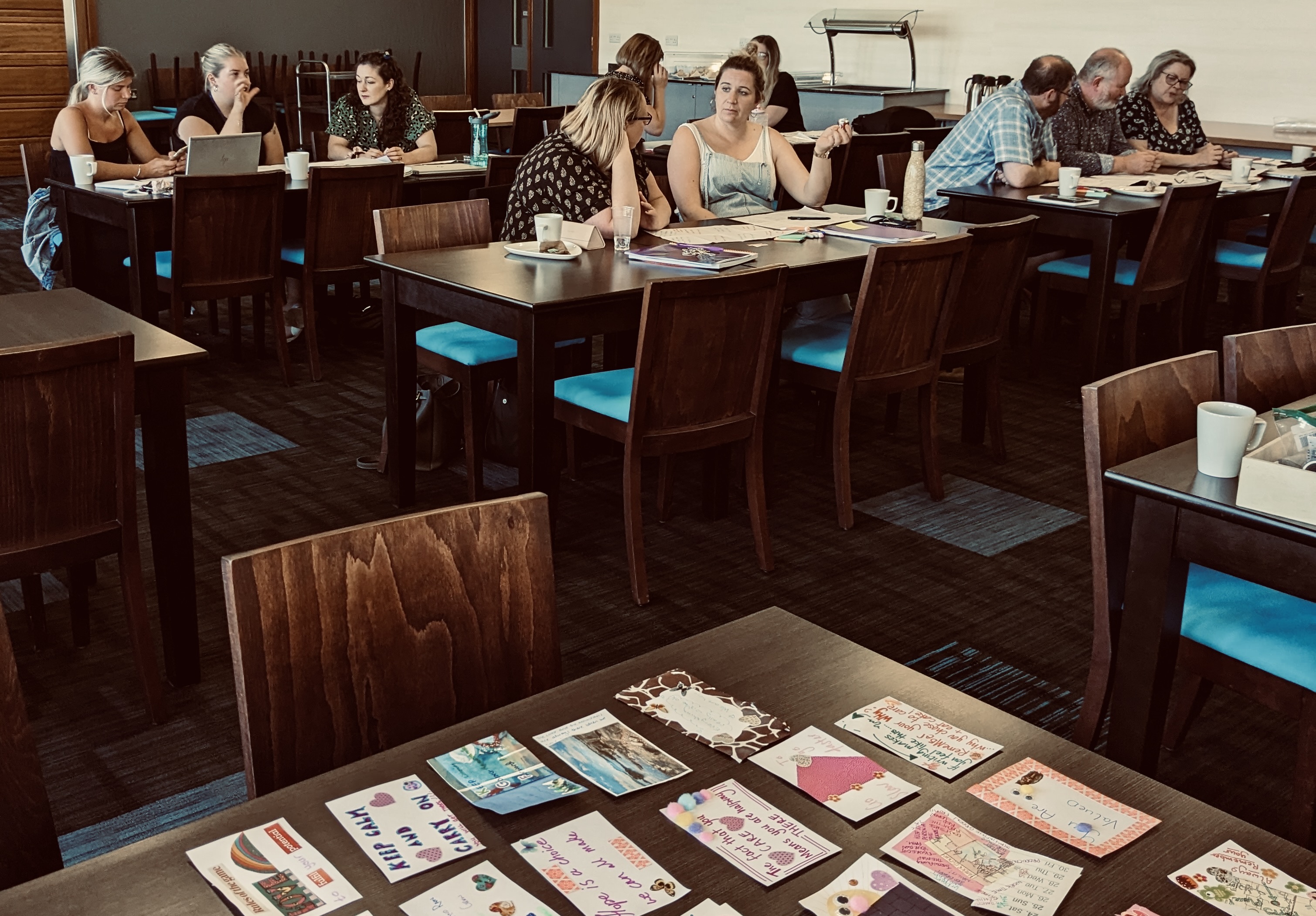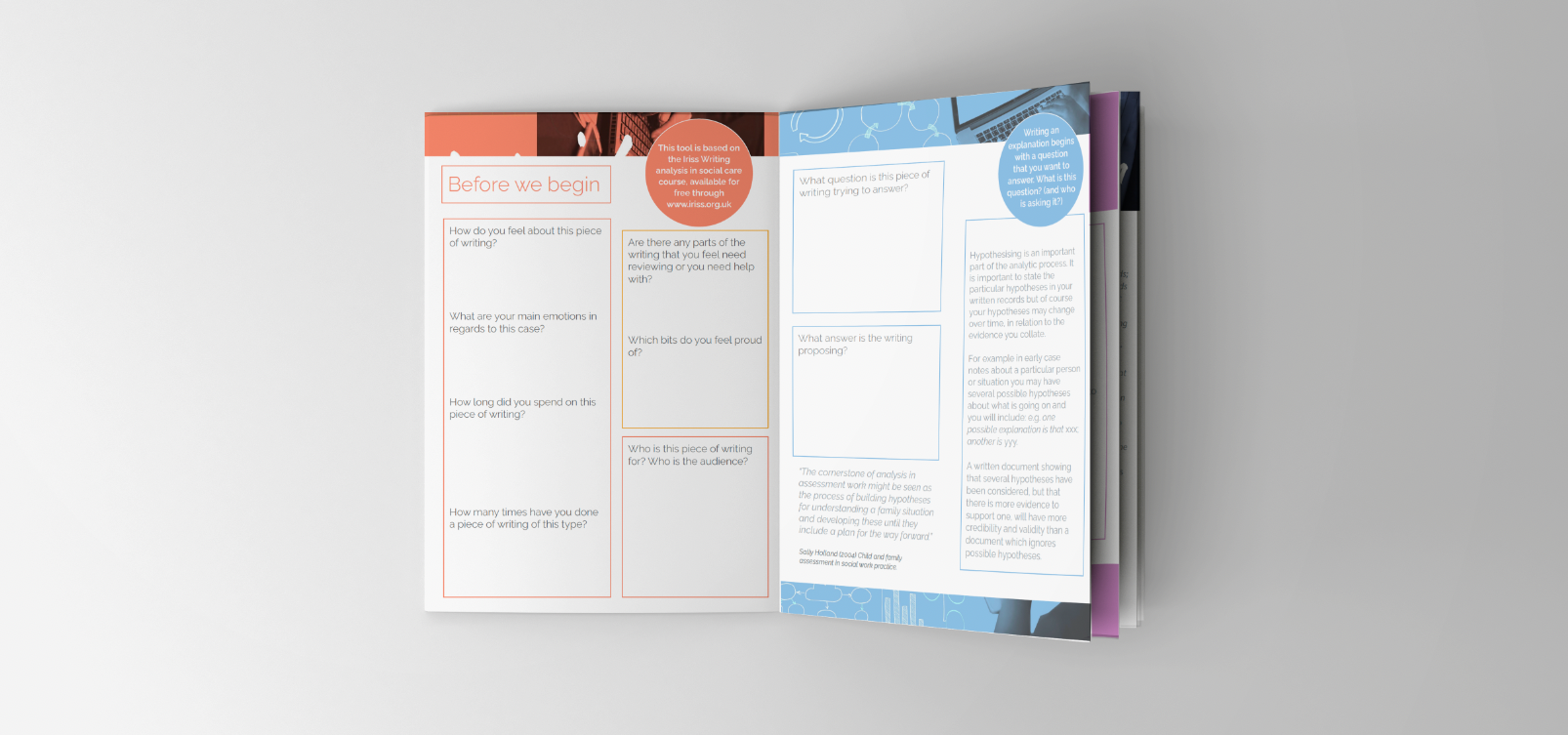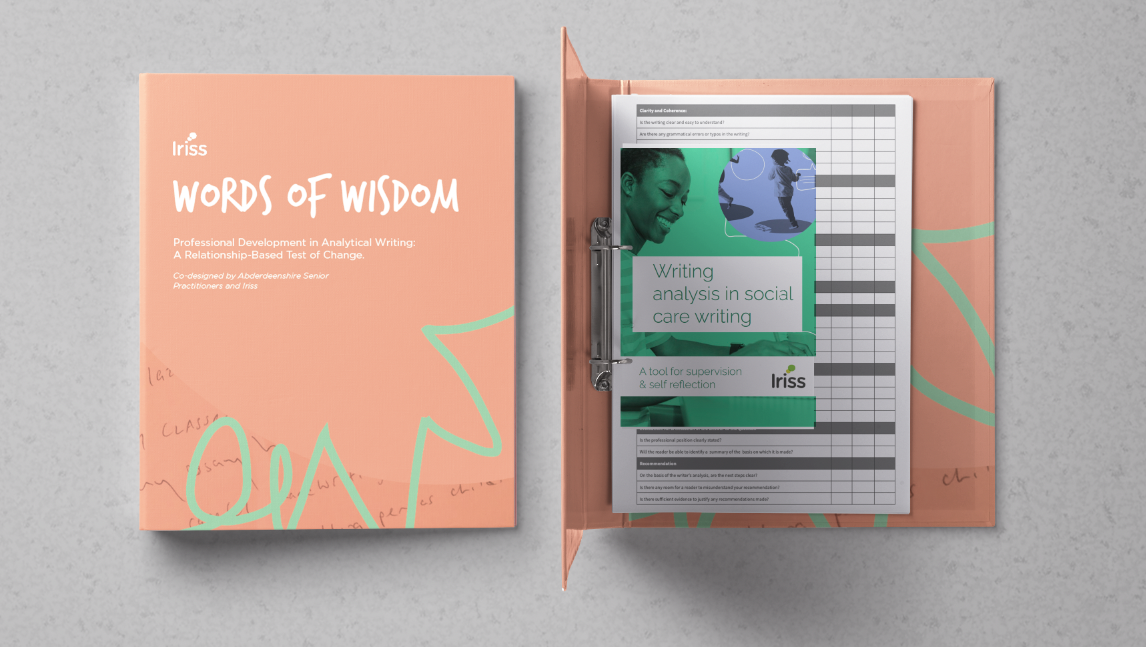In collaboration with Aberdeen and Aberdeenshire Council, we have embarked on a journey to explore how we learn about professional writing.
Professional writing in social care is an art, and it requires continuous professional development. It's characterised by its complexity, catering to a multitude of audiences and purposes. At Iriss, our commitment to this area is grounded in years of experience. Over time, we have developed a host of resources and tools tailored to the art of analytical professional writing. But crucially we see that there is a need for ongoing support to ensure the effective integration of these resources into everyday practice.
This work builds on the solid foundation of previous projects in East Ayrshire in 2020 and Borders in 2021. These experiences have equipped us with insights and have revealed areas where improvement is essential. We believe that practice change can be cultivated through a deeper understanding of how individuals feel about their professional writing. So we have embarked on a collaborative effort, involving various partners across Scotland, to creatively embed this knowledge. The question we are asking now is how do we craft interventions that can genuinely create transformative change within the system?
This is where our ‘dream team’ of Senior Practitioners come in!
Collaborating closely with a group of Aberdeenshire Senior Practitioners, we've embarked on a project centred around making and testing tools for change. Does providing senior practitioners with essential tools, resources, time, support, and a well-defined plan, impact on the quality of writing within their service? Our goal is to create a tool and then measure the impact of it.
First off, we had to create something to test!
Our first session was focused on developing a tool to test. This tool was to be a reflective resource for staff, based on the Iriss writing analysis course. It was quite a big jump to get our heads around all of the content that is contained in the course, which the senior practitioners had studied beforehand. We spent a while visioning all of the different ways in which writing could be supported. Alongside time machines, mind readers, and Magic pens, we managed to come up with some very practical ideas. It wasn't all easy and some practitioners did find it hard initially to get their knowledge down on paper. But thats where we come in! Bringing together practice knowledge with the design expertise of Iriss always makes for an exciting day.
"Today was great. I find some of the more creative/imagination stuff harder, so it was good to get my brain working. Would be amazing if we could get a workable tool that we can use in practice from this."
Here are Iriss we always like to create space for reflection and peer-to-peer learning in these kind of sessions.
" It was relaxed, informal, and beneficial. Particularly enjoyed all the activities and tasks as that helped the session move forward. It provided opportunities to reflect on self and work practices which was unexpected."
The ideas that came out of this session were really rich, and it was easy to pull together a reflective practice tool off the back of the sessions.
Yesterday we took this tool back to the group, where we looked at it together, tested it, and began designing our test of change.
A ‘test of change’ is a whole project in itself. We spent time getting clear on what our plan is. This involved really thinking about when things would happen, what the milestones are, and which risks we need to think about.
Through this process we established that while a traditional-style audit aligns with our objectives in several ways, there are some things we really want to focus on in the design:
- We want the process to be manageable. Senior practitioners have heavy workloads and are navigating challenges, such as staffing gaps and extensive areas of responsibility. Our project should complement their existing work rather than burden them with additional tasks. We wanted to develop a process where the ‘measuring’ of writing quality will be part of the supportive relationship between senior practitioners and the staff they support.
- We recognised the need for clarity regarding the scope of the audit. Initially, we thought about implementing this change across all individuals supervised by senior practitioners. However, after discussion, we decided to focus on one or two staff each. The choice of these individuals rests with each practitioner, whether they require additional support with their writing or display a keen interest in developing their skills. The ultimate objective is to incubate writing leaders within teams who can gradually manifest change over time.
- The ‘test of change’ is just that – a test that evaluates the change, not the practitioners themselves. It isn't a contest of who writes best, nor is it about wielding a red pen. Instead, it revolves around relationship-based, coaching-style sessions that complement practitioners work and existing support structures.
The journey now continues as we embark on the next phase of this project. We will be designing up the resources that the senior practitioners need to make their plan a reality.
“Im daunted but reassured by Josie! Came away excited and with a good feeling, Fun, relaxed session. Thankyou so much.”
“Really enjoyed the session. Clear focus and engaging. Really positive about the next steps.”
If you are interested in designing a similar test of change in your team, take a look at our project springboard tool. It is a very simple tool but that will take you through a timeline and structure for you to get your head around how you will actually get your work done. We also love to support this kind of work and are always open to hearing your ideas and sharing with you how we could work with you to bring your ideas to life! Get in touch anytime.




